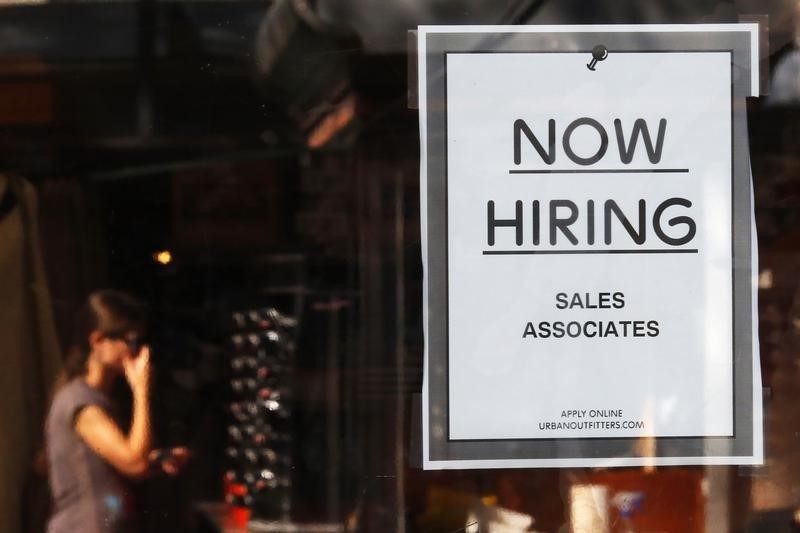* Jobless rate dips to 5.3 pct in July, lowest since late 2012
* Employment eases after very strong June, trend remains healthy
* Wages lag far behind, businesses underpaying a wide problem
(Updates with inquiry on wages)
By Swati Pandey
SYDNEY, Aug 16 (Reuters) - Australia's jobless rate dipped to the lowest level in six years in July and full-time jobs jumped, a solid result that supported hopes for an eventual revival in long-lagging wages growth.
Figures from the Australian Bureau of Statistics (ABS) released on Thursday showed unemployment dipped to 5.3 percent from 5.4 percent in June, having stayed in a 5.4-5.6 percent band since mid-2017.
The participation rate eased to 65.5 percent from record-highs of 65.8 percent earlier this year.
Less encouragingly, overall jobs fell by 3,900 in July, confounding expectations for a gain of 15,000 to follow on from an upwardly revised 58,300 surge in June.
July's drop was entirely led by part-time jobs which slipped by 23,200 while full-time jobs jumped 19,300.
"The fall in employment is not worth losing sleep over," said Paul Dales, chief economist at Capital Economics. "Jobs growth remains healthy enough and the unemployment rate has continued to edge lower".
Annual jobs growth of 2.4 percent was still well ahead of the U.S. pace of job creation of 1.6 percent.
"The bigger issue is that structural changes in the economy mean that even a much lower unemployment rate probably won't generate the rise in wage growth that the RBA is banking on to boost underlying price inflation," Dales added.
The Reserve Bank of Australia (RBA) has held rates at a record low 1.5 percent for almost two years awaiting a revival in consumer prices and further falls in unemployment.
Leading indicators of the labour market suggest solid employment growth ahead, but economists still expect household income to remain subdued.
WAGE THEFT
Wage growth has held near record lows of around 2 percent over the past couple of years even as the unemployment rate ticked lower from as high as 5.8 percent in early 2017. RBA has said the conventional estimate of full employment lies around 5 percent. However, evidence elsewhere suggested that rate will need to fall further for wage pressures to start emerging.
New South Wales state, which includes Sydney, has had unemployment of 5 percent or lower for the past two years but that has failed to spark any wage inflation.
Exacerbating the problem is the trend of more part-time and casual jobs in the economy where workers have low job security and paltry incomes. have also been a rash of cases of businesses paying workers less than the legal minimum, not paying for overtime or skipping compulsory pension contributions.
So big is the problem that Australia's Queensland state has commissioned an inquiry into so-called "wage theft". Public hearings began on Thursday.
Unions and labour lawyers say employers who operate outside employment frameworks and exploit workers should face fines or jail.
Many labour hire operators "are effectively invisible to legal and regulatory regimes," the law firm Maurice Blackburn Lawyers and some unions said in a joint submission to the inquiry.
"Maurice Blackburn believes that they are merely another way in which employers are abrogating their responsibilities to their workers," it said.
Industry groups have argued against criminalising the practice. The National Retail Association acknowledged the situation was "alarmingly common", but it blamed the complex system of employee rewards for non-compliance.
